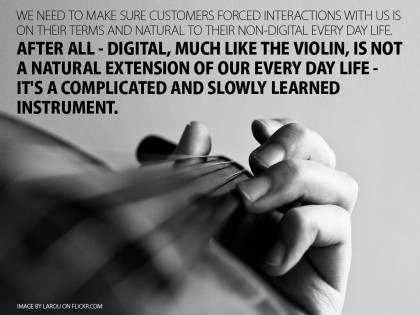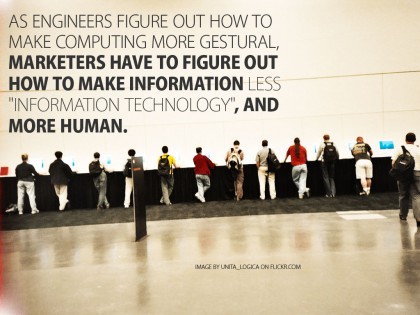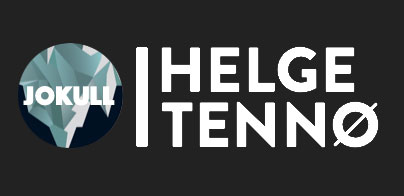As people are discussing whether or not they had the creativity to ask Wolfram Alpha a smart enough question, if Bing is a real threat to Google or if Google Wave could be the new fusion of everything social and information
. I’d like to think that even though all of these ideas are smart, some even beautiful in the most digital sense of the word – they are not the future of information or collaboration online, they are merely iterations of the dreadfully slow and unnecessary process that is part of what could be called Conscious Computing.
Conscious Computing is where we ignore the fact that as digital and real life is fusing, we need to make sure customers’ forced interactions with us is on their terms and natural to their non-digital every day life. After all – digital, much like the violin, is not a natural extension of our every day life – it’s a complicated and slowly learned instrument.

But videos like this one, a bit of topic, but showing great potential, might seem to indicate that a lot of this is changing
Anxiety disorders What is sildenafil citrate? cardiovascular symptoms – discuss compliance and any recurrence of spontaneous.
.
(via offworld)
And in this instance, as engineers figure out how to make computing more gestural, marketers have to figure out how to make information less “information technology”, and more human.

The answer, unfortunately, is not a clear cut scenario, as illustrated by Godin and Brown:
Seth Godin once wrote:
- “If the computer is so smart, why do I have to do all the work?”
Contrasted by the first minute of this interview with Tim Brown, from the Nokia Ideas Project Website:
Where Brown states that making a service that the participant is not forced to “do”, one that disappears into the background, is useless
. The whole goal of a service should be to help the participant actively enjoy it.
So, as we are becoming more and more conscious of the forced interactions we are having with computers – at the same time as invisibility threatens the value exchange between companies and participants, an interesting challenge to marketers is this: When do I need to invite the customer to participate, and when do I need to take care of stuff for them?



Great post, as normal that is :)
One thing re “digital not a natural extension of our everyday life”. I would say that brands should help make it less complicated so that the thought of years of violin practice does not come to mind…